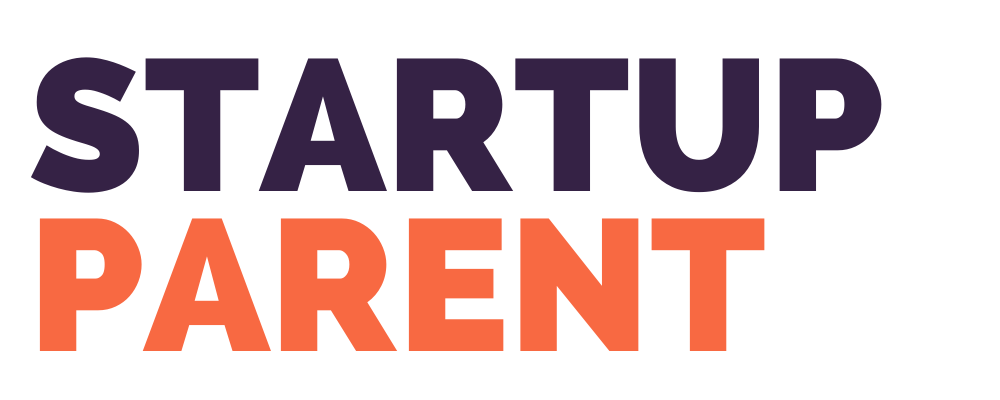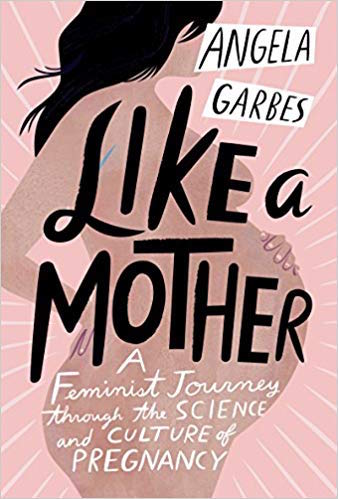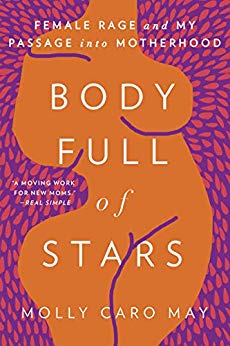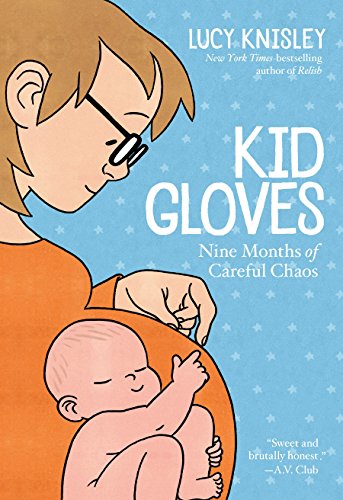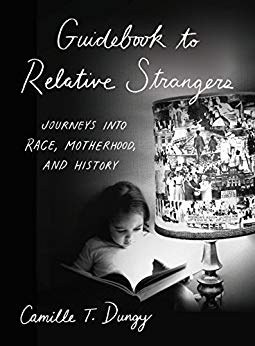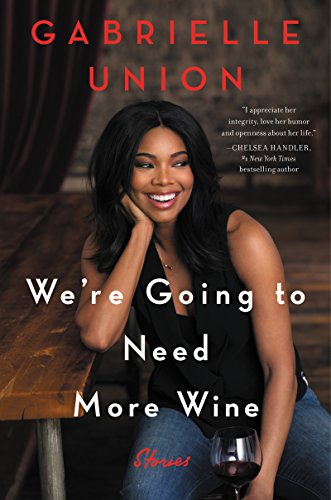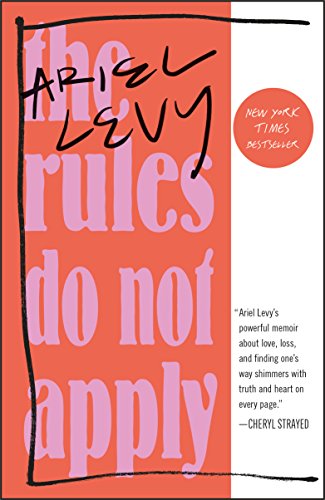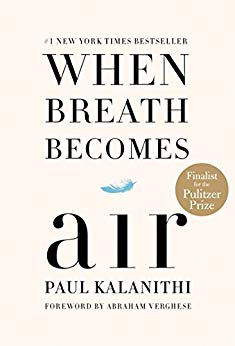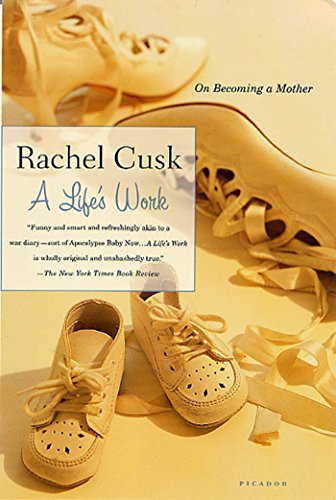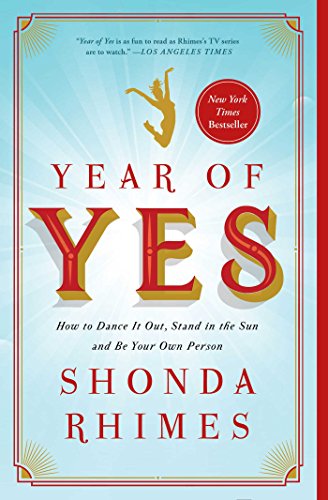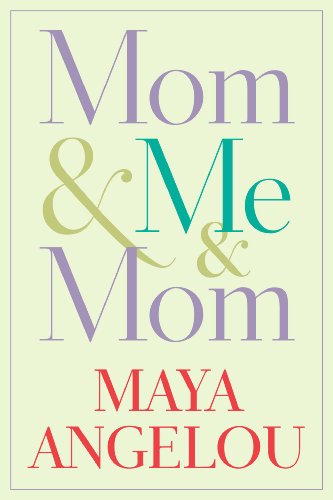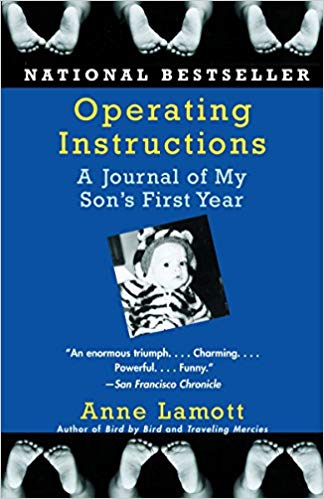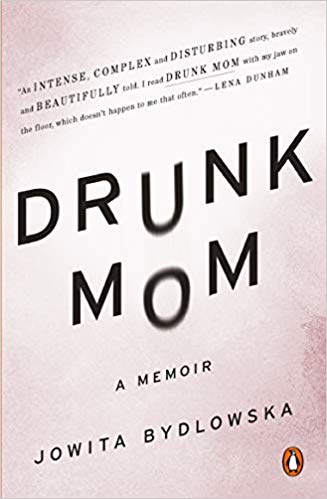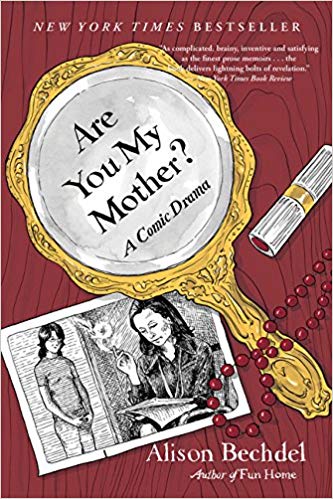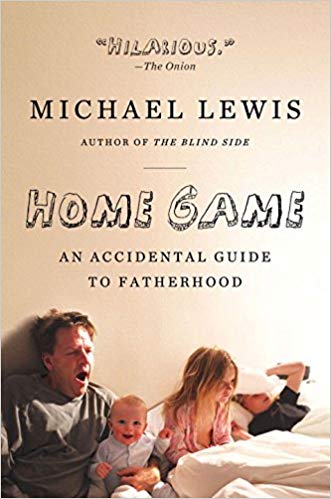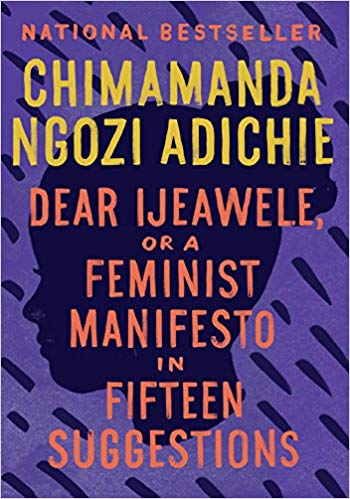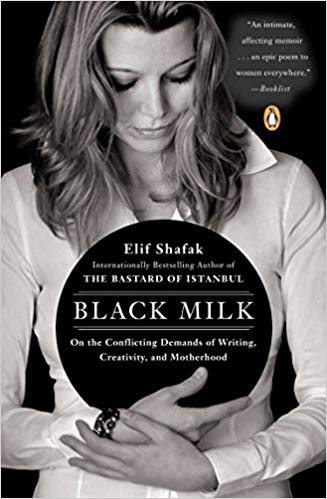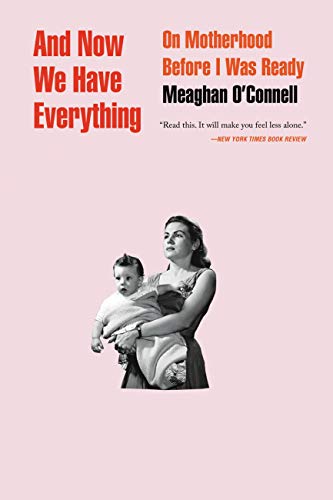READING LISTS
Sometimes the right book at the right time makes all the difference.
This is our library of recommended books to read if you're navigating your health, body, pregnancy, or the early days of parenting. In addition, I've got a round-up of my favorite books on business, entrepreneurship, marketing and leadership. Over the past decade, I've read hundreds of books and some of them are stand-out winners for business and parenting support. Good books, crafted with love and effort by authors who take years to pour wisdom into their pages, can be life-changing. Take a look through our recommendations by category, below!
MEMOIRS: BOOK RECOMMENDATIONS
The work of parenting—motherhood, fatherhood, parenthood—is transformative, and there are thousands of variations on what it means to dive deep into the work of caretaking. From the mundane to the heartbreaking, reading these stories captivates me. I couldn’t get enough. As you’ll notice, I’m a big fan of memoirs—there are a lot listed here, and I heartily recommend them.
Like A Mother
A Feminist Journey Through the Science and Culture of Pregnancy
Angela Garbes
If I could only pick one pregnancy book to recommend, it would most likely be this one. Angela Garbes is a brilliant writer and researcher, and this book, to use a cliché phrase, “blew my mind.” She takes you on a journey inside the human body and all of the physiological components that happen when you initiate conception, grow a placenta, go into labor, and begin breastfeeding. All of these phenomena are wild and surreal, and learning about how they happen and how much we currently understand—and how much we don’t!—is eerily exciting.
Did you know that breast tissue cells are like mini-vampires? They can self-cannibalize, in that the cells begin to eat each other to remove excess breast tissue about two years after you’re completely done breastfeeding. HOW FREAKING COOL. This is thought to be one of the mechanisms for how breastfeeding can reduce the rates of breast cancer, although the link is not complete yet in studies.
Previously a food and culture writer, Angela takes her gaze towards the female body, tracing the mysteries of life, feminism, and science through the arc of pregnancy and birth. Devoid of trite advice, obnoxiously patronizing pats on the back, or inaccurate data myths, this book feels like freedom—and awe.
Read this if: you want to fall in love with the awesome and inspiring nature of the human body, and you’re a fan of well-researched, investigative reporting. It’s time someone turn the gaze of research and writing on the marvel of the female body, and this book is that—and more.
Body Full of Stars
Female Rage and My Passage into Motherhood
Molly Caro May
“My new job is manager of bowel movements. When my newborn, my dog, and I all poop before 10 a.m., it’s a good day and the goodness of it morphs me into a super-accomplished woman.” Molly Caro May recounts the ways pregnancy took her body and made it something else, and how she had to reacquaint herself with her body anew in the postpartum period. Struggling through a very difficult birth, a pelvic floor that felt destroyed, the inability to hold pee in—and therefore, run, walk, hike, or move in the ways that she was familiar with—and the ongoing demands of a new baby, Molly accounts in painstaking and painful detail how motherhood can leave one full of rage. She shares how out of touch she feels with her body, in part because of our modern culture and the abysmal lack of community and connection to other women.
On grief and rage and mood changes, she writes: “These moods are normal for a woman who has just gone through the hugest endurance event of anyone’s life and a massive hormonal shift while she is adjusting to sleep deprivation and bleeding from a sore vagina and learning how to get milk from her breast to her baby. But because women do it every day, no one really talks about it at any length.” So she’s hear to talk about it.
Read this when: you need to rage-scream alongside someone else, or feel less alone. Read this if you’re struggling to figure out your new normal in your postpartum body, or you feel like you’ve been permanently altered and everything makes you angry.
Kid Gloves
Nine Months of Careful Chaos
Lucy Knisley
This stunning graphic comic is a heart-opening novel of the trials of getting pregnant and how hard pregnancy can be. Lucy shares how for her, each part of the journey to parenthood was wrought with difficulties—her stories around how hard it was to get pregnant, the surgery she had to have to open a semi-closed or collapsed uterus, and the number of miscarriages she suffered through made me well up in tears.
Then, when she does get pregnant, she experiences a host of pregnancy challenges, eventually swelling up with preeclampsia and having to be hospitalized.
She undergoes a traumatic and intense delivery and, within days, has to return to the hospital after the delivery.
Sweet and tender, heart-wrenching and raw, Lucy mixes her personal narrative with bigger commentary on the dialogue missing around conception, fertility, and pregnancy, and peppers her book with pull-out pages about the myths and misconceptions in the way our modern culture describes pregnancy. At the end, Lucy and her husband grapple with the decision to have just one child, realizing that the risk to her life is too high to try for another kid, and decide to be a one-child family. The story is beautifully written and illustrated, and full of pause moments that open up a chance to educate the reader about the realities of miscarriage, pregnancy challenges, nausea, and trauma.
Who should read this: if you’re struggling to get pregnant, or overwhelmed by the challenges of a difficult pregnancy, this book is easy to read (pictures!) and empathetic and aware. She’ll make you feel seen and understood, and never judge.
Guidebook to Relative Strangers
Journeys into Race, Motherhood and History
Camille T. Dungy
I have not finished this book yet, but it is on my list of recommendations for one reason: because parenting memoirs are far too often about white women from middle and upper classes. There is far too little diversity in our published stories about what parenting looks like across race, class, age, sexuality, gender, and other spectrums. When Angela Garbes wrote an essay for The Cut asking Why Are We Only Talking About ‘Mom Books’ By White Women?, I paid attention.
“We’ve arrived at a cultural moment where people agree that motherhood is a rich topic, worthy of rich consideration, and many books to meet the task,” writes Angela. “I’m here for it. Motherhood is life, the beginning of every story.” But, she critiques sharply, all of the attention and publicity for mom books is centered around white women’s stories. She writes: “Pregnancy and motherhood are experiences as individual as they are universal. We need books that reflect this, and we lose so much — stories that go untold, readers left unreached — when we allow Mom Books, and the discussion surrounding them, to be the exclusive territory of white women. If we put in the work to expand our view, to grow our understanding of motherhood to include all of its shades and iterations, then we could have what we deserve: something real and substantial, more enduring than any trend.”
In her essay, she names “Guidebook” as one of her favorites, and I’m looking forward to reading about it.
We’re Going to Need More Wine
Stores That Are Funny, Complicated and True
Gabrielle Union
A memoir of Hollywood, race, and growing up as a black woman in different places in the United States. Gabrielle speaks up at a time when we need more women’s voices, lending her career and perspective to the conversation around power, race, gender, feminism, and motherhood.
Gabrielle is a parent to two teenage boys, through her partnership with Dwayne Wade. They want to have children together, and struggle openly with infertility. Her voice on infertility and the depth it takes to try for a child and never know if it will change is heartbreaking.
Read this if you: want to make sure that all voices are heard in motherhood. If you or someone you know is a step-parent, bonus parent, adoptive parent, surrogate, or struggling with infertility, find solace!
The Rules Do Not Apply
The Rules Do Not Apply
Ariel Levy
A heartbreaking and honest memoir of a woman, who, at 38, loses her partner, her baby, and her job. This book really broke my heart, and also made me examine a lot of potentially unexamined beliefs and assumptions I hold about what pregnancy, work, and marriage should look like. Deeply sad yet radically vulnerable, I think these stories are the ones we need to tell more of. It’s not that this isn’t happening; it’s that we’re afraid to talk about it. I wonder what will change when we become more consistent about acknowledging, honoring, and processing our griefs—because pregnancy is ultimately about bringing life into the world. And with life comes death. We will be asked to become intimate with both in our lifetimes, and hearing these stories is a necessary part of our journey.
When Breath Becomes Air
When Breath Becomes Air
Paul Kalanithi
When you find out you have terminal cancer, and only a short time to live, how do you spend your life? This heartbreaking and love-full book captures the love of a partner, a family, and of living itself. There’s a reason this book captured national attention.
Paul Kalanithi was diagnosed with stave IV lung cancer after completing nearly a decade of training as a neurosurgeon. The diagnosis sends him into the question of what makes a life worth living, and how to make meaning—and joy—with the time he has left. He died before completing this book, and what he did manage to get down shares the human struggle with what it means to live a great life, and what to do with the limited time any of us really has.
A Life’s Work
On Becoming a Mother
Rachel Cusk
“The experience of motherhood is an experience in contradiction. It is commonplace and it is impossible to imagine. It is prosaic and it is mysterious.” So writes Rachel Cusk, novelist, about the strange ritual and rite of passage that is motherhood. Selected by The New York Times as one of the 50 best memoirs in the past 50 years. She captures, in lyrical and rhythmic detail, the banality and insanity that motherhood can feel like. “Because I am the baby’s home there is nowhere I can leave her, and soon I begin to look at those who walk around light and free and unencumbered as if they were members of a different species.”
She documents both her own entry into motherhood, as well as the cultural peculiarities (and abject sexism and discrimination) in her transition to motherhood. It was mesmerizing to read.
Year of Yes
How to Dance It Out, Stand in the Sun and Be Your Own Person
Shonda Rhimes
What does the most powerful woman in television do when she gets home? And when does she spend time with her children? (Does it matter?) — These are the questions behind a driven, talented, committed woman in show business who is as fierce as any when it comes to telling great stories.
Shonda Rhimes is the “mega-talented” creator of hits like Grey’s Anatomy and Scandal and the mind behind How To Get Away With Murder. She also took a year to document how saying “YES” to everything changed her life. Now, women generally already say yes to a lot, and they’re taking a lot of extra work on, leaving them overworked and burned out. How do you say YES to more, especially with three hit television shows and three children at home?
She chronicles what saying yes helped her learn about herself, how and when she had to say no, and what unexpected opportunities came up.
Also, I listen to this on Audible, and I highly recommend you listen as well, because Shonda is a great orator.
Mom & Me & Mom
Mom & Me & Mom
Maya Angelou
I will read anything by Maya Angelou, and I will read it again and again and again. Her bestselling autobiographies are national award winners. This book is about her relationship with her mother.
Operating Instructions
A Journal of my Son’s First Year
Anne Lamott
Anne Lamott has long been a favorite author of mine, and when I discovered that she’d written a book about her first year of her son’s life, I quickly picked it up. She recounts, in honest and fresh detail, how, at 35, she found herself pregnant and overwhelmed, and how she survived that first year. It’s humorous, at times dark, and always candid—I loved it.
Drunk Mom
Drunk Mom: A Memoir
Jowita Bydlowska
A friend sent me this book when I announced I was pregnant, along with a few time-saving gadgets and gear. It was her way of saying “Good luck, you’ve got this, and this is a crazy journey we’re on!”
This was hard, yet important, to read. I found myself deeply sad, at times, for how much postpartum depression—and all-around depression—can suck people down in life, and how much this woman struggled when she became a parent. Parenthood is not for everyone, and managing the immense amount of work, the shocking lack of independence and the burdens of responsibility that can wear even the most steadfast humans down—it’s fucking hard. I don’t have more words than that.
In part, I saw myself: how a life might end up, how if a few things went wrong, I’d be the same; how, with a history of alcoholism and depression in my own family lineage, this is closer to me that I feel comfortable admitting. At the same time, I grappled with a sense of judgment that rose inside of me; I found myself distancing and separating myself from the story, judging her—out of fear?—because of the hard that this pain causes others in an outward ripple effect.
Overall, I don’t think we should shy away from hard conversations, and I think mothers are particularly vulnerable to being overworked, overlooked, and under-nourished, and as such, suffer from depression, anxiety, fatigue, and becoming invisible. All of this is a recipe for deep sadness, and it’s not okay. Read this if you care about making the world a better place for women and mothers, and if you want to stretch your compassion to reach around more humans. Also, if you’re struggling in a similar way, know that you’re not alone, and that this shit is hard.
Are You My Mother?
Are You My Mother?: A Comic Drama
Alison Bechdel
This is a “comic drama” by Alison Bechdel—of the famed Bechdel Test. (The Bechdel Test is a test of television and theater that asks whether two women are in a scene, together, speaking to each other, about something other than a man. It’s a surprisingly hard test to pass for most television shows, believe it or not.) Alison pens a graphic novel about her relationship to her mother and her work in psychotherapy and as an artist. Interwoven throughout the book are graphic depictions of dreams, discoveries, memories, and psychological insights from the big guns, like Freud and Winnicot.
The book reads like an inside look into someone’s mind as they’re processing and unpacking all the layers of their childhood. I love seeing how people’s minds work, and going inside the strange brains of other people is such a curiosity of mine. Graphic novels are quick to read once you dig into them—the first one I picked up as an adult took a minute to learn how to read, but then, if you’ve ever read a comic book as a kid, you quickly get into it and you’re sad at how quickly the book is over!
Home Game
An Accidental Guide to Fatherhood
Michael Lewis
Michael Lewis kept a record of what happened after the birth of each of his three children. It’s mundane, it’s honest, and “maybe the funniest, most unsparing account of ordinary daily household life ever recorded.” What’s good is that it’s from the point of view of a man inside the house, because parenting happens to all genders, not just women.
Dear Ijeawele, or A Feminist Manifesto in Fifteen Suggestions
Dear Ijeawele, or A Feminist Manifesto in Fifteen Suggestions
Chimamanda Ngozi Adichie
Written as a series of letters to a good friend, Chimamanda writes out a 64-page answer to the question: How can I raise my daugther to be a feminist? Clear, concise, powerful—Chimamanda shares about the two main premises of feminism (First: I matter equally, full stop, never a contingent; and second, if you reverse anything, does it still hold true?). This premise and test form the backbone for examining everything and unpacking the depth to which our gender training tells little girls to be quiet, nice, accommodating, supportive, to aspire to marriage, and be thankful when they get picked—all things we do not teach our little boys.
Her suggestions are simple, but they are not small: Be a full person, she commands, reminding her friend that you, as a mother, must live your life expansively in order to teach your children what’s possible. Don’t do the work of fathers; be full partners. Squash gender roles. Challenge assumptions. Don’t be a partial feminist, or an accommodating feminist, or a benevolent sexist. Read, a lot, and question things. Remember that marriage is never an achievement. Reject likability. Take on your own identity.
I will be buying my sons, my friends, and their friends copies of this book.
Black Milk
On the Conflicting Demands of Writing, Creativity and Motherhood
Elif Shafak
Can you keep writing when you become a mother? This book is a look inside of that question, and what happened when acclaimed novelist Elif Shafak stopped writing for the first time in her life. Guilt, anxiety, and postpartum crises took hold—and she needed to re-navigate her way back to her work anew.
And Now We Have Everything
On Motherhood Before I Was Ready
Meaghan O’Connell
“There was no note, no alarm sounded, just the quiet organization of cells while you wait to be let in on the joke.” This is Meaghan, describing pregnancy and the complete lack of awareness that can come during the first weeks of pregnancy. Am I? or Am I Not? Well, it’s not always clear, bright, or shiny.
This book, ‘On motherhood before I was ready,’ is a beautiful and honest look at what transpires in the adventure to, during, and into motherhood. Like many memoirs, I craved personal stories and read through this at lightning speed. It did not disappoint. Meaghan touches on the intensity and craving of motherhood, but the simultaneous cultural clicking we give to women who want it too much: “Wanting to have a baby was a desperate quality in a woman, like wanting a relationship multiplied by a thousand, and it got more desperate with age.” She pokes at the bear that is work and our culture of overwork, how little we do to prepare for the massive transition to parenthood, perhaps because none of us really are ready: “Motherhood was the farthest thing from the lives we were living but still out there waiting for us, the great “eventually,” the great “inevitably.” Of course we had more important things to do first, or that was the party line. We had our careers. Was it a defensive act, our busy-ness?”
An early employee at Kickstarter and Tumblr, Meaghan worked in the tech industry before becoming a co-editor of the personal website The Billfold and a contributor to sites like Longreads and New York Magazine’s The Cut. Her sharp, clear writing on what is the most normal yet peculiarly strange of things, pregnancy, made me laugh and cry, and most of all—feel seen.
Who should read this: If you’re a fan of candid, straight storytelling when it comes to the identity-shifting madness of motherhood, pick this one up. Sometimes a book takes you for a ride, and you finish it faster than you wanted, exhaling at the end but hoping it’ll continue. This was excellent.
